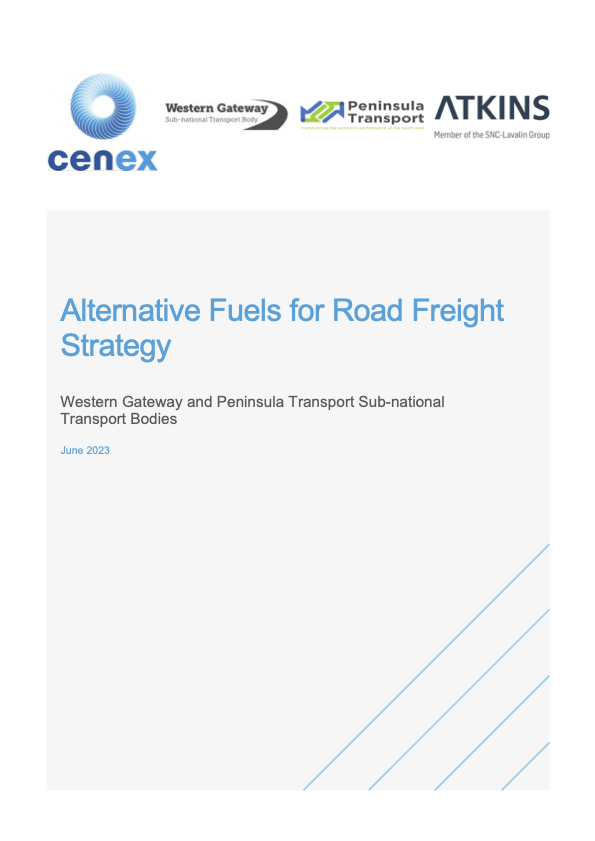Alternative fuels for road freight
The Alternative Fuels for Road Freight Strategy has been jointly developed with Western Gateway Sub-national Transport Body, and identifies how best to support the freight and logistics sector in the uptake of alternative fuels such as hydrogen, gas and electric power.
Freight is a vital part of the South West’s transport sector, so understanding the barriers that businesses in the area face when it comes to switching to alternative fuel vehicles, and identifying the actions required to support them as they make this change, is crucial on the path to net-zero compliance.
Strategy has been developed by forecasting future trends, engaging stakeholders and businesses and building a bespoke model to estimate the number of electric charging points and hydrogen refuelling stations required to support a fleet of alternatively fuelled Light Goods Vehicles (LGV) and Heavy Goods Vehicles (HGV) in 2040 across the region. Both high and low uptake of alternative fuel vehicles were modelled.
Twenty-four freight and logistics clusters have been identified as potential alternative fuel refuelling locations, with 13 based in the Peninsula Transport area. The next step will include further investigations to identify the practicalities around delivering alternative fuels refuelling points at these sites, with a view to then helping facilitate their delivery through working with operators, energy suppliers and local authorities, to ensure the development of a cohesive refuelling network. A site shortlisting tool being developed with Department for Transport funding by Midlands Connect STB on behalf of all the STBs will assist this work.
The alternative fuels for road freight work will feed into, and provide invaluable evidence for our full transport strategy.

